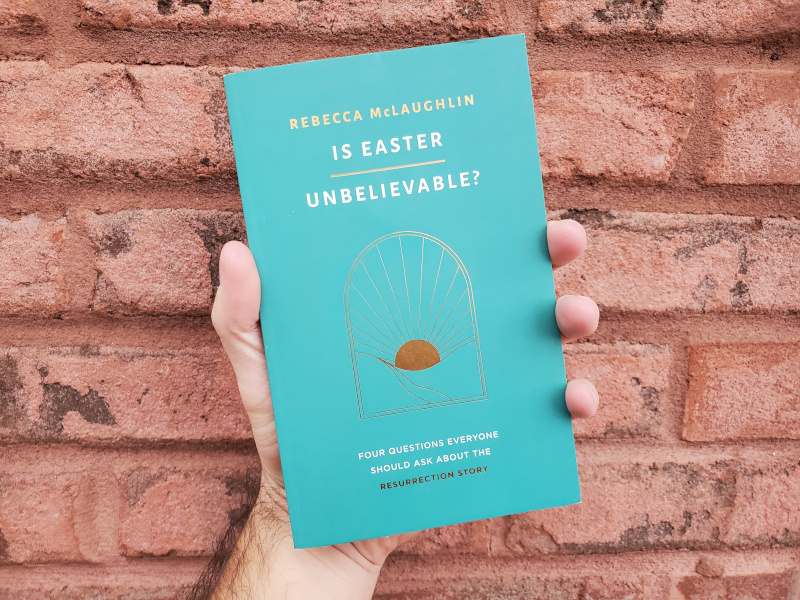I’ve read a few of Rebecca McLaughlin’s books. As one of my favorite authors, she writes in a compelling and conversational style. McLaughlin writes on Christian apologetics, and my favorites of hers include Confronting Christianity and The Secular Creed. At less than 70 pages long, Is Easter Unbelievable?: Four Questions Everyone Should Ask About the Resurrection Story is a very short book exploring the resurrection story of Jesus the Christ.1 In typical McLaughlin style, each chapter begins with a question that the author attempts to answer throughout the chapter. This book contains four chapters.
- Is Jesus’ Life Historical?
- Is Jesus’ Death Ethical?
- Is Jesus’ Resurrection Credible?
- Is Jesus’ Offer Desirable?

The historical Jesus
McLaughlin’s 2019 book Confronting Christianity does a remarkable job of answering twelve major objections to Christianity, including the historical Jesus. I think Is Easter Unbelievable? does an adequate job as well. In the first chapter, McLaughlin points out that, despite only 61% of U.K. adults believing Jesus was a real, historical person2, professional historians generally agree that he was a real person who walked on Middle Eastern soil roughly 2,000 years ago.
You see, even if we set the Gospels aside, the basic facts of Jesus’ life are attested by other early documents, written by people who didn’t even like Christians. From these non-biblical documents, we know that Jesus was a 1st-century Jewish rabbi who was believed to be the Christ, crucified under the authority of the Roman governor Pilate (who ruled over Judea from AD 26/27 to 36/37), and subsequently worshiped by his followers as if he were divine.
McLaughlin makes a strong case for the credibility of the Gospel writers’ memories. In answering a common objection that the Gospels cannot be trusted since they were written several decades after the death of Jesus, she points out that the timeframe is well within the lifetimes of the eyewitnesses. Those eyewitnesses to the life of Jesus experienced the most significant moments of their lives while he was with them. McLaughlin uses the life and death of Dr. Martin Luther King, Jr. to make her point: There are people alive today who knew Dr. King, and their memories of his speeches, conversations, and the details of his life and death are still as vibrant as ever—because his life left an incredible impact on them. How could they forget?
Conclusion
Overall, this book is a nice short read. My opinion of apologetics is that it can be very edifying for Christians and nonsense for others, especially atheists. Unless it’s establishing incontrovertible historical or scientific fact, which many atheists subscribe to, apologetics tends to accomplish very little. This book is no different, in my opinion. McLaughlin makes a few good philosophical arguments, but I’m not convinced that Is Easter Unbelievable? can convince skeptics, which is the main purpose of apologetics. But I enjoyed the read, as I’m sure did many other believers. And I do hope I’m wrong.
-
Also check out Is Christmas Unbelievable? for another short read by Rebecca McLaughlin. ↩
-
According to the Talking Jesus report out of the United Kingdom, 61% of U.K. adults believed in 2015 that Jesus was a real, historical person. In 2022, that number fell to 54%. ↩
